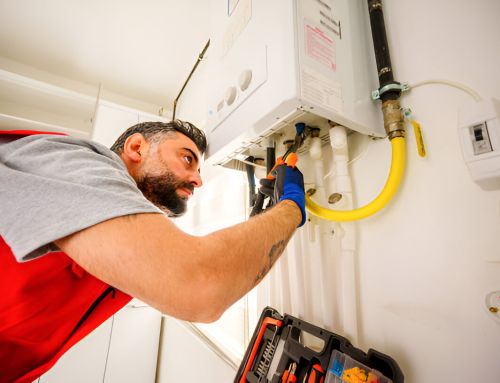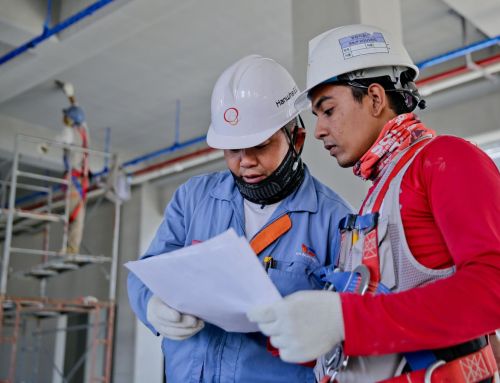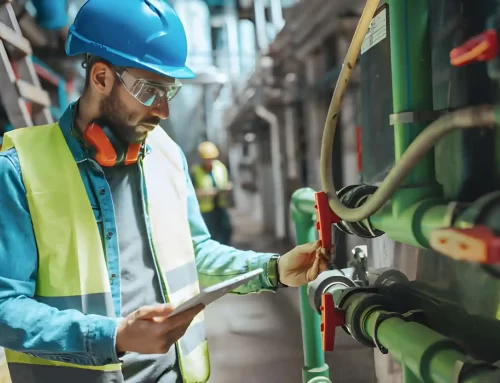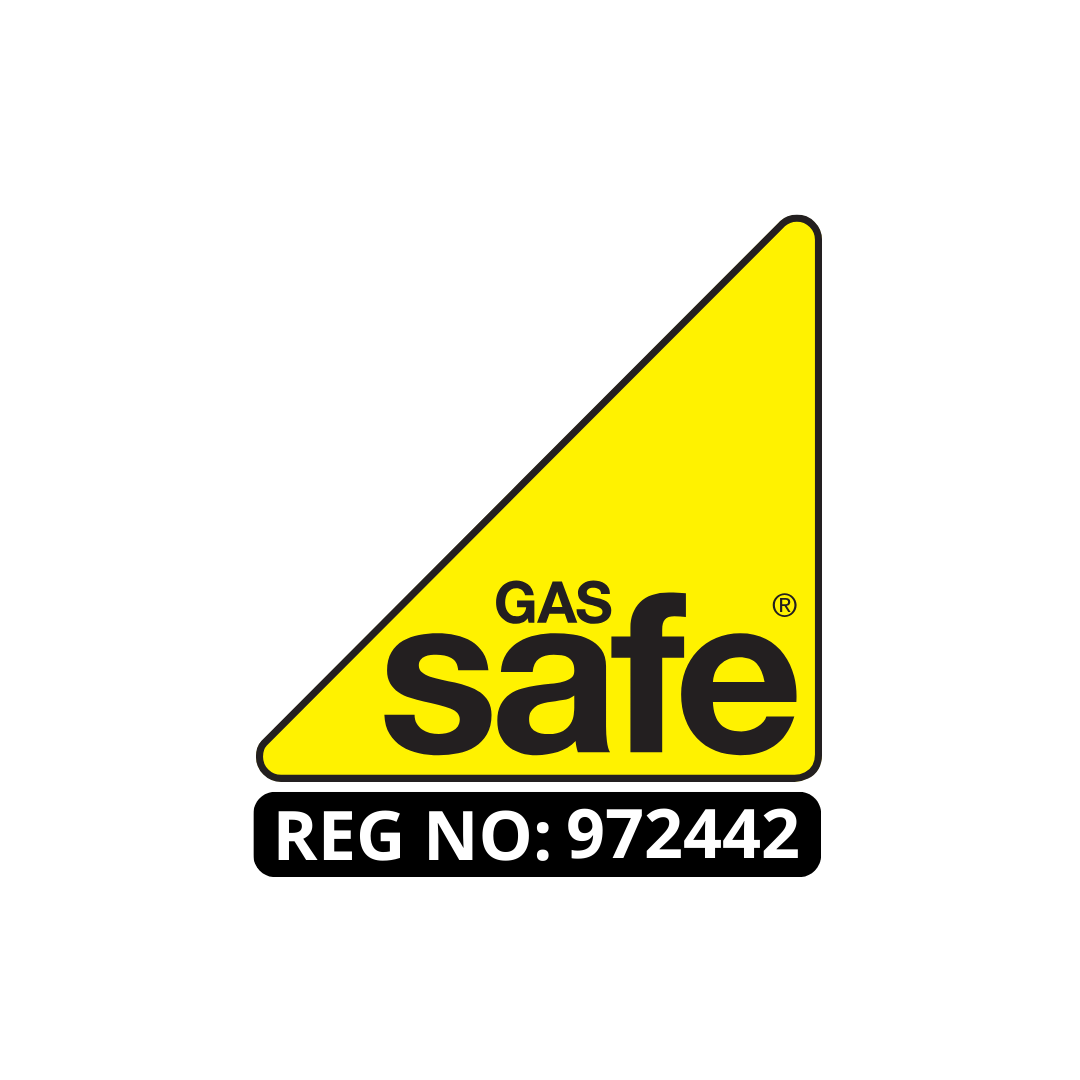
Gas safety regulations in the UK are essential for ensuring the safety of all gas users. These rules are designed to protect landlords, businesses, and homeowners from potential hazards. Compliance with these regulations is not just a legal obligation; it also safeguards lives. Understanding the specifics of these regulations can be complex. What are the key requirements that must be met? The answers lie in the details of the legislation.
Key Takeaways
- Landlords must obtain an annual Gas Safety Certificate from a qualified Gas Safe engineer for each rental property to ensure tenant safety.
- Businesses are required to conduct yearly gas safety checks and maintain records for all gas appliances to protect employees and customers.
- Tenants should be informed about the gas shut-off valve’s location and the importance of maintaining gas appliances regularly to reduce risks.
- Gas Safe-registered engineers are essential for conducting inspections, issuing safety certificates, and educating clients on gas safety compliance.
- DIY gas repairs are prohibited; only qualified professionals should conduct any gas work to ensure safety and legal compliance.
Understanding Gas Safety Regulations in the UK
Understanding gas safety regulations in the UK is essential for ensuring the safe use of gas appliances and services. These regulations are designed to protect individuals and property from the potential dangers associated with gas, such as leaks, explosions, and carbon monoxide poisoning.
The Gas Safety (Installation and Use) Regulations 1998 outline the responsibilities of landlords, businesses, and homeowners in maintaining gas appliances, ensuring they are installed and serviced by qualified professionals. Regular safety checks and maintenance are mandated, highlighting the importance of using Gas Safe-registered engineers.
Additionally, appliances must carry the appropriate safety markings, indicating compliance with safety standards. Familiarity with these regulations helps individuals identify legal obligations and best practices, creating a safer environment for all.
Why Gas Safety Regulations Are Important
Gas safety regulations play an important role in protecting public health and safety. These regulations are designed to guarantee that gas appliances and installations are safe for use, minimising the risk of accidents such as gas leaks, explosions, and carbon monoxide poisoning. By establishing safety standards, they help to safeguard not only the occupants of residential properties but also businesses and the wider community.
Compliance with these regulations is fundamental for landlords and businesses, as it not only promotes safety but also protects them from legal liabilities. Regular inspections and maintenance of gas systems are mandated to identify potential hazards before they escalate.
Additionally, these regulations foster public confidence in gas services, encouraging responsible usage and awareness among consumers. To summarise, gas safety regulations are essential for maintaining a secure environment, preventing tragedies, and promoting a culture of safety within society.
Key Gas Safety Regulations Landlords Must Follow
While guaranteeing the safety of tenants, landlords must adhere to several key gas safety regulations to maintain compliance and protect their properties.
First and foremost, landlords are required to obtain an annual Gas Safety Certificate for each rental property, which demonstrates that all gas appliances, flues, and installations have been inspected by a qualified Gas Safe registered engineer. This certificate must be provided to tenants within 28 days of the inspection.
Furthermore, landlords must keep records of these inspections for at least two years. It is also essential to guarantee that gas appliances are properly maintained and serviced regularly to prevent any potential hazards.
Landlords must inform tenants about the location of the gas shut-off valve and provide clear instructions for safe use. By following these regulations, landlords not only safeguard their tenants’ well-being but also mitigate legal risks associated with gas safety compliance.
Gas Safety Regulations for Businesses and Commercial Properties
In addition to the regulations that govern residential properties, businesses and commercial properties must also comply with stringent gas safety regulations to secure the safety of employees and customers.
These regulations guarantee that gas installations and appliances are safe to use, minimising the risk of accidents.
Key requirements include:
- Annual Safety Checks: Businesses must conduct annual gas safety checks on all appliances by a registered Gas Safe engineer.
- Record Keeping: A record of these checks must be maintained and accessible to employees and relevant authorities.
- Employee Training: Staff should be trained to identify potential gas hazards and know emergency procedures.
- Proper Ventilation: Adequate ventilation must be guaranteed in areas where gas appliances are used to prevent the accumulation of harmful gases.
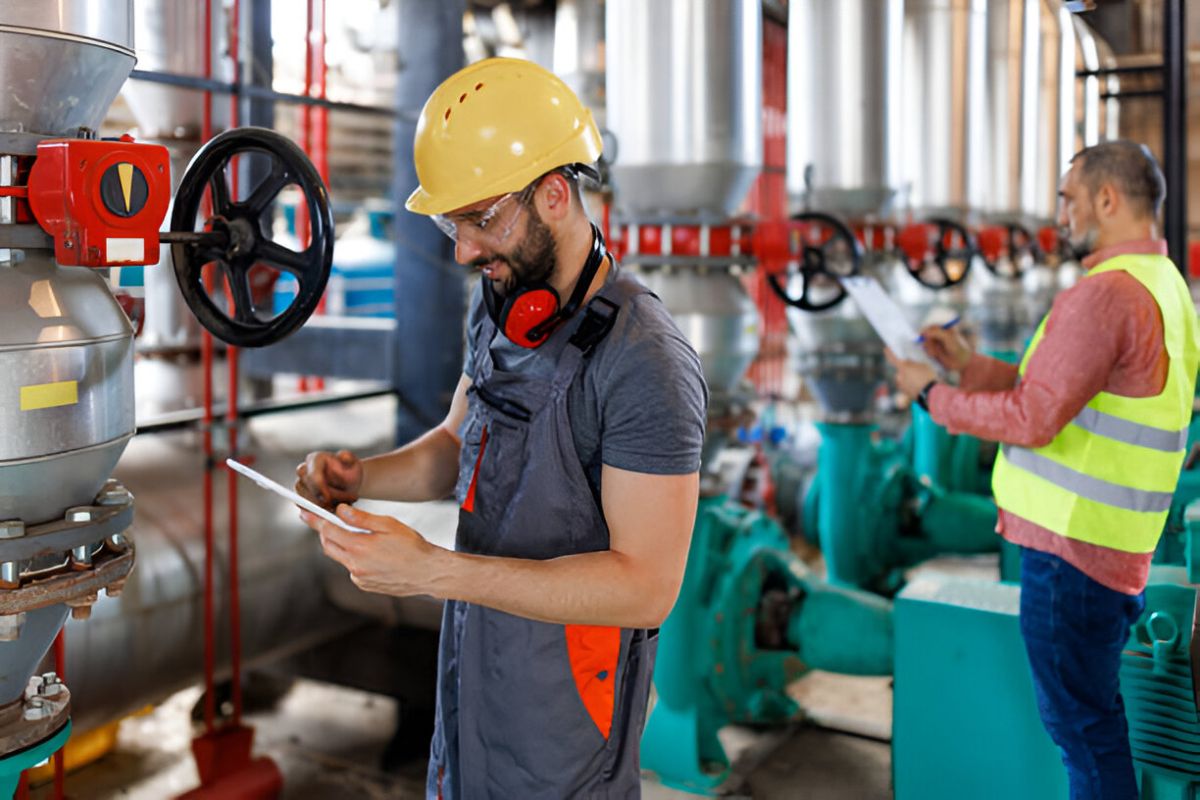
How Gas Safety Regulations Apply to Homeowners
Homeowners are required to adhere to specific gas safety regulations to guarantee the safety of their households. This includes making sure that all gas appliances, such as boilers and cookers, are installed and maintained by qualified professionals.
Homeowners must also be vigilant about the proper ventilation of gas appliances to prevent the buildup of harmful gases, such as carbon monoxide. It is essential for homeowners to be aware of the signs of gas leaks, including unusual smells or hissing sounds, and to act quickly by contacting a gas engineer.
Regular servicing of gas appliances not only enhances safety but also guarantees their efficient operation, potentially reducing energy costs. Additionally, homeowners should consider installing carbon monoxide detectors in their homes as an added precaution.
What the Law Says About Annual Gas Safety Checks
Annual gas safety checks are a legal requirement for landlords in the UK, guaranteeing that all gas appliances and installations are safe for tenants.
These checks must be performed by a registered Gas Safe engineer and should occur at least once every 12 months. Compliance with these regulations not only protects tenants but also helps landlords avoid legal penalties.
Key aspects of annual gas safety checks include:
- Inspection of Appliances: All gas appliances must be checked for proper operation.
- Ventilation Assessment: Adequate ventilation must be guaranteed for gas appliances.
- Flue Examination: The flue and terminal should be assessed for blockages or leaks.
- Record Keeping: Landlords must maintain records of inspections and provide tenants with a copy.
Gas Safety Certificates and Legal Compliance
Gas safety certificates play an essential role in guaranteeing legal compliance for landlords in the UK. These certificates are issued following a thorough gas safety check, which assesses the safety and functionality of gas appliances, installations, and flues.
It is a legal requirement for landlords to obtain a new gas safety certificate annually for each rental property. This obligation not only protects tenants but also safeguards landlords from potential legal repercussions.
Failure to comply with gas safety regulations can result in severe penalties, including fines or imprisonment. Additionally, landlords must keep records of gas safety checks for at least two years, demonstrating their commitment to tenant safety.
Landlords need to remain aware of their responsibilities under the Gas Safety (Installation and Use) Regulations 1998. By obtaining and maintaining valid gas safety certificates, landlords guarantee they meet legal standards and contribute to a safe living environment for their tenants.
The Role of Gas Safe Registered Engineers in Meeting Regulations
A qualified team of Gas Safe-registered engineers plays an essential role in guaranteeing compliance with safety regulations in the UK.
These professionals are trained to perform various critical functions that safeguard both properties and individuals. Their responsibilities include:
- Conducting Inspections: Regular assessments of gas appliances and installations to identify any potential hazards.
- Issuing Certificates: Providing Gas Safety Certificates, which confirm that appliances meet safety standards.
- Performing Maintenance: Carrying out necessary repairs and maintenance to guarantee appliances operate efficiently and safely.
- Educating Clients: Informing landlords, businesses, and homeowners about best practices for gas safety and compliance requirements.
Understanding Gas Safety Regulations During Property Sales
Sellers must make certain that all gas appliances, installations, and flues within the property are safe and properly maintained. This can be achieved by obtaining a Gas Safety Certificate from a registered Gas Safe engineer, which confirms that all gas systems have been inspected and comply with legal requirements.
It is also vital to provide potential buyers with information regarding the maintenance history of the gas appliances, as transparency can foster trust.
Additionally, sellers should facilitate access for inspections and make sure that any necessary repairs are completed before the property is listed.
By adhering to these steps, property sellers can demonstrate their commitment to safety and compliance, ultimately making the property more attractive to buyers.
Understanding and adhering to gas safety regulations is essential in guaranteeing a smooth transaction and safeguarding future occupants’ well-being.
Common Misunderstandings About Gas Safety Regulations
Many individuals, especially landlords and homeowners, possess a skewed understanding of these regulations, which can lead to non-compliance and safety risks.
Here are four common misunderstandings:
- Only New Installations Require Safety Checks: Many believe that only newly installed gas appliances need inspections, overlooking the importance of regular checks for existing systems.
- Gas Safety Certificates Last Indefinitely: Some think that a gas safety certificate is a one-time requirement; however, it must be renewed annually.
- DIY Repairs Are Acceptable: There’s a notion that minor gas repairs can be handled without professional help, but this can pose serious hazards.
- All Engineers Are Qualified: Not all gas engineers are legally qualified; only those registered with the Gas Safe Register should be trusted for safety-related work.
Understanding these misconceptions is essential for ensuring safety compliance and protection.
Gas Safety Regulations and the Role of the Gas Safe Register
Gas safety regulations in the UK are fundamental for protecting public health and guaranteeing the safe use of gas appliances. Central to these regulations is the Gas Safe Register, which serves as the official list of qualified gas engineers who are legally permitted to work on gas systems. This register was established to enhance safety standards and to provide consumers with a reliable way to identify competent professionals.
Landlords, businesses, and homeowners are required to verify that any gas work is conducted by a registered engineer. Regular inspections and maintenance of gas appliances are essential to prevent carbon monoxide poisoning, gas leaks, and other hazards.
The Gas Safe Register also plays a significant role in promoting awareness of gas safety, providing guidance, and offering resources for individuals to understand their responsibilities. Overall, adherence to gas safety regulations and collaboration with the Gas Safe Register greatly contribute to a safer environment for all.
The Importance of Gas Safety Regulations in Commercial Kitchens
In commercial kitchens, adherence to gas safety regulations is essential for ensuring the health and safety of staff and patrons alike.
These regulations are designed to mitigate risks associated with gas appliances and installations, promoting a safe working environment.
Key aspects of safety regulations in commercial kitchens include:
- Regular Inspections: Ensuring gas appliances are inspected at least once a year by qualified professionals to identify potential hazards.
- Proper Ventilation: Maintaining adequate ventilation to prevent the accumulation of harmful gases, such as carbon monoxide.
- Staff Training: Providing thorough training for staff on the safe use of gas appliances and emergency procedures.
- Emergency Procedures: Establishing clear emergency protocols to follow in the event of a gas leak or other hazardous situation.
Gas Safety Regulations for Rental Properties and HMOs
While guaranteeing tenant safety is a fundamental responsibility for landlords, compliance with gas safety regulations is particularly essential for rental properties and Houses in Multiple Occupation (HMOs).
These regulations mandate that landlords conduct annual safety checks on all gas appliances, installations, and flues to ascertain they are safe and functioning correctly. A qualified Gas Safe registered engineer must perform these checks, providing landlords with a Gas Safety Record, which must be provided to tenants within 28 days of the check.
In addition, landlords must verify that any gas appliances are properly maintained and serviced, minimising risks associated with gas leaks or faulty equipment.
For HMOs, specific regulations apply, requiring additional safety measures due to the higher number of occupants.
Failure to comply with these regulations can lead to severe penalties, including fines and potential legal action, highlighting the importance of adherence to landlord gas safety standards in safeguarding tenant welfare.
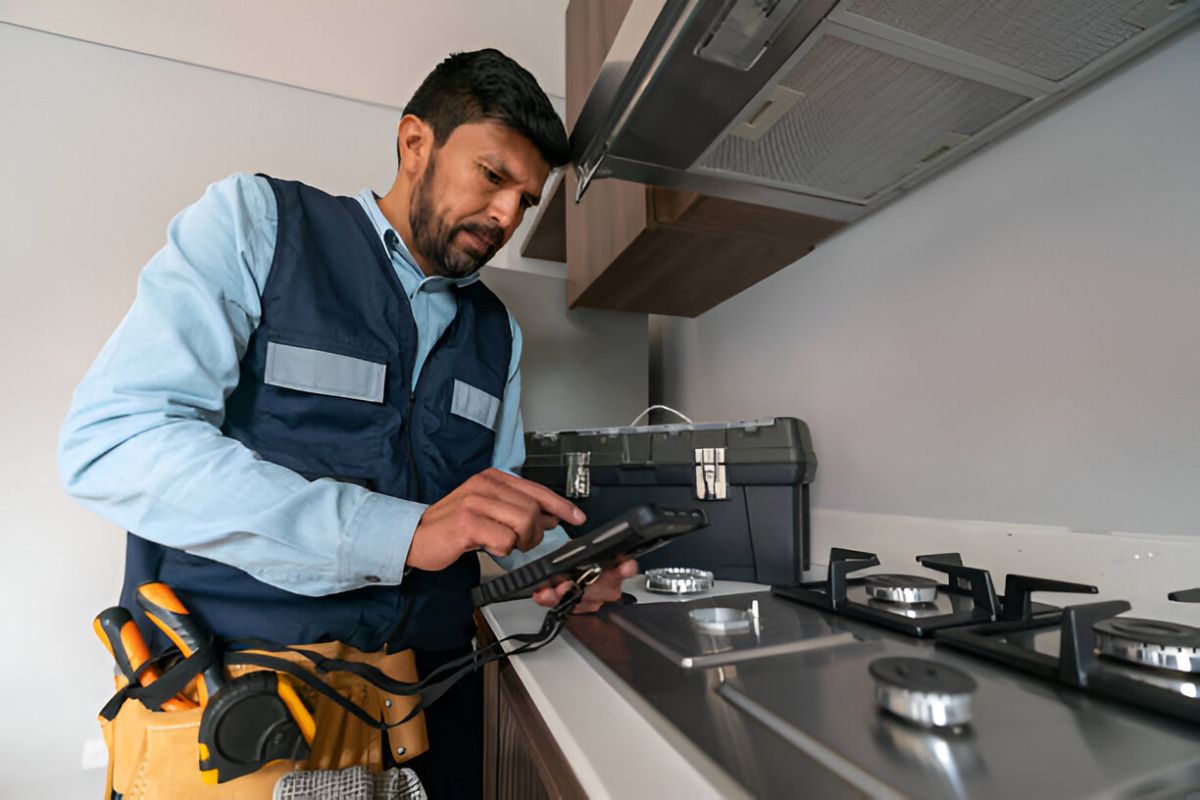
How Gas Safety Regulations Protect Against Carbon Monoxide Risks
Recognising the dangers posed by carbon monoxide, gas safety regulations play a critical role in mitigating risks associated with this colourless, odourless gas.
These regulations are essential for ensuring the safety of individuals in residential and commercial properties. They include several key measures:
- Regular Inspections: Mandated annual checks by qualified Gas Safe registered engineers to detect potential hazards.
- Installation of Alarms: Requirements for carbon monoxide detectors in homes to provide early warnings of gas leaks.
- Proper Ventilation: Guidelines ensuring adequate airflow in areas with gas appliances, reducing the risk of gas accumulation.
- Appliance Maintenance: Regulations that enforce proper installation and routine servicing of gas appliances to maintain their efficiency and safety.
Frequently Asked Questions
If a gas leak is suspected, one should immediately evacuate the premises, avoid using electrical devices, and contact emergency services or a qualified gas engineer. Ensuring safety is the top priority in such situations.
To find a Gas Safe registered engineer, individuals can visit the Gas Safe Register website or contact local gas service companies. Verifying registration guarantees the engineer is qualified to handle gas-related work safely and effectively.
Yes, penalties for non-compliance with gas safety regulations can include substantial fines and potential imprisonment. Authorities strictly enforce these regulations to guarantee safety, and businesses or landlords failing to comply may face serious legal consequences.
To achieve gas safety compliance, one requires a valid Gas Safety Certificate, maintenance records, installation documentation, and annual inspection reports. These documents guarantee adherence to safety standards and demonstrate accountability in gas management practices.
Old gas appliances should typically be replaced every 10 to 15 years, depending on usage and maintenance. Regular inspections can help determine the need for replacement, ensuring safety and efficiency in gas consumption.
Conclusion
In conclusion, gas safety regulations in the UK play an essential role in safeguarding lives and property for landlords, businesses, and homeowners alike. By adhering to the Gas Safety (Installation and Use) Regulations 1998 and ensuring compliance through regular inspections and certifications, all parties can greatly reduce the risks associated with gas appliances. Ultimately, understanding and implementing these regulations fosters a safer environment, promotes public health, and enhances confidence in gas services across the nation.
About the Author: Atia Amin
Related Posts
Get Social
Recent Posts
- Fire Safety Certificate London for Commercial and Residential Buildings
- Fire Safety Planning and fire risk assessment London for Building Safety
- Top Reasons to Invest in Fire Alarm Installation London for Safety and Compliance
- Gas Safety Certificate London: Protecting Occupants and Property Value
- EPC London: Everything You Need to Know About Energy Performance


